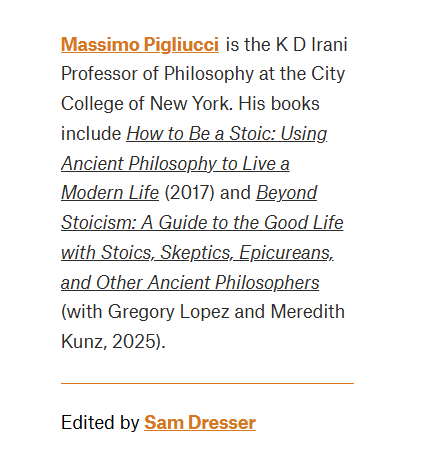These lessons in scepticism could make the world a better place

In our age of certainty and dogma, we would all do well to learn from the philosophy of the ancient Greco-Roman sceptics
https://psyche.co/ideas/these-lessons-in-scepticism-could-make-the-world-a-better-place

Detail from Portrait of a Prelate (1592-99) by Michelangelo Merisi da Caravaggio. Courtesy Wikipedia

We live in a paradoxical time: despite the proliferation of critical thinking courses in schools and universities, our public discourse has never been more dominated by inflexible certainties, tribal allegiances to dubious ‘facts’, and a profound aversion to questioning our own beliefs. In an age where certainty is currency, doubt has become a radical act.
Our social media ecosystems reward conviction, not contemplation. Politicians trumpet certainties rather than explore complexities. Even our educational institutions often teach critical thinking as a weapon to dismantle others’ arguments rather than a tool for examining our own. The skill we most desperately need is the very one we’ve neglected to cultivate: the ability to hold our own certainties in suspension.
What if doubt isn’t weakness but wisdom? What if the most intellectually courageous stance isn’t to plant your flag in the ground of conviction, but to embrace the productive discomfort of uncertainty? The ancient Greco-Romans, facing their own societal upheavals, developed sophisticated approaches to scepticism that might serve us better than our modern pretences to critical discourse.
The word ‘scepticism’ comes from the Greek skeptikos, meaning ‘enquirer’. In the ancient Greco-Roman world, there were at least four distinct approaches to scepticism, which I and my co-authors Gregory Lopez and Meredith Kunz explore in some detail in Beyond Stoicism: A Guide to the Good Life with Stoics, Skeptics, Epicureans, and Other Ancient Philosophers (2025). Let’s take a look at four representative philosophers whose way of thinking would very much be useful to us all-too-certain denizens of the 21st century.
Socrates’ approach: knowing what you don’t know.....................
snip
The Madcap
(1,149 posts)All is true
All I believe
Alternative views
Are not welcome
I have been told
Instructed in tales
Stories heroic
Morals from on old
I don’t care what you tell me
No evidence leads to change
No science invalidates
No truth overwhelms
I will never change
My heart is steadfast
My mind focused like stone
I have all I need to survive
--
When new knowledge reaches the public eye
Why do so many ignore the new truths?
Why do so many discard the new facts?
Why do so many imagine they own reality?
Deluded fools who think wisdom is never changing one’s mind
No matter what the circumstances, no matter what is said
They are buried in graves of absent thought
With no hope of self-improvement
--
There is truth
Why ignore it?
Why sit steadfast
In your delusions?
cachukis
(3,187 posts)a sense of peace from all this reflection.
I taught Socrates and Cicero from my own studies. Wanted to share that wisdom.
I am adamant that replacing philosophy with science exposed the shortcoming that newness matters more than sense.
They coexist among thinkers.
Thanks for your postings.
Bernardo de La Paz
(55,457 posts)It strikes me that exploring science as an end in itself, as a joy, is more true and enlightening than using it as a tool for gain of wealth and advancement. I think that science and philosophy complement each other marvellously.
cachukis
(3,187 posts)Bernardo de La Paz
(55,457 posts)I found it illuminating, enlightening, thought-provoking and gets beyond the dismissive simplistic attitude that many people hold (like I did) about Epcurianism.
It seems to me that I have somehow found in zen wisdom the best or ways to apply the best of the self-reliance of the Stoics, the joy and inner calm of the Epicurians, and the rationalism of other Greeks (Aristotle, Plato, Socrates at their best, and others).
I enjoyed the article immensely and am still thinking about it: https://aeon.co/essays/forget-plato-aristotle-and-the-stoics-try-being-epicurean